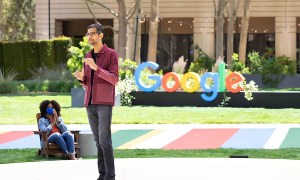
The Google IO 2025 keynote has concluded. We spent almost two hours watching the announcements made at the Shoreline Amphitheater in Mountain View, California and if you’re looking for anything other than AI you’ll be hard pressed to find something.
Yes, Google spent pretty much the entire keynote speaking about Gemini AI and a host of new AI features it’s bringing to its various platforms and tools. What’s good is a lot of the new announcements are rolling out today, giving us the chance to try them out – such as AI Mode in Google Search for those in the US.
There was the briefest of mentions for Android 16, but interestingly more airtime for Android XR. That’s pretty cool as it feels like we’re getting closer to the launch of a set of Android XR powered smart glasses.

